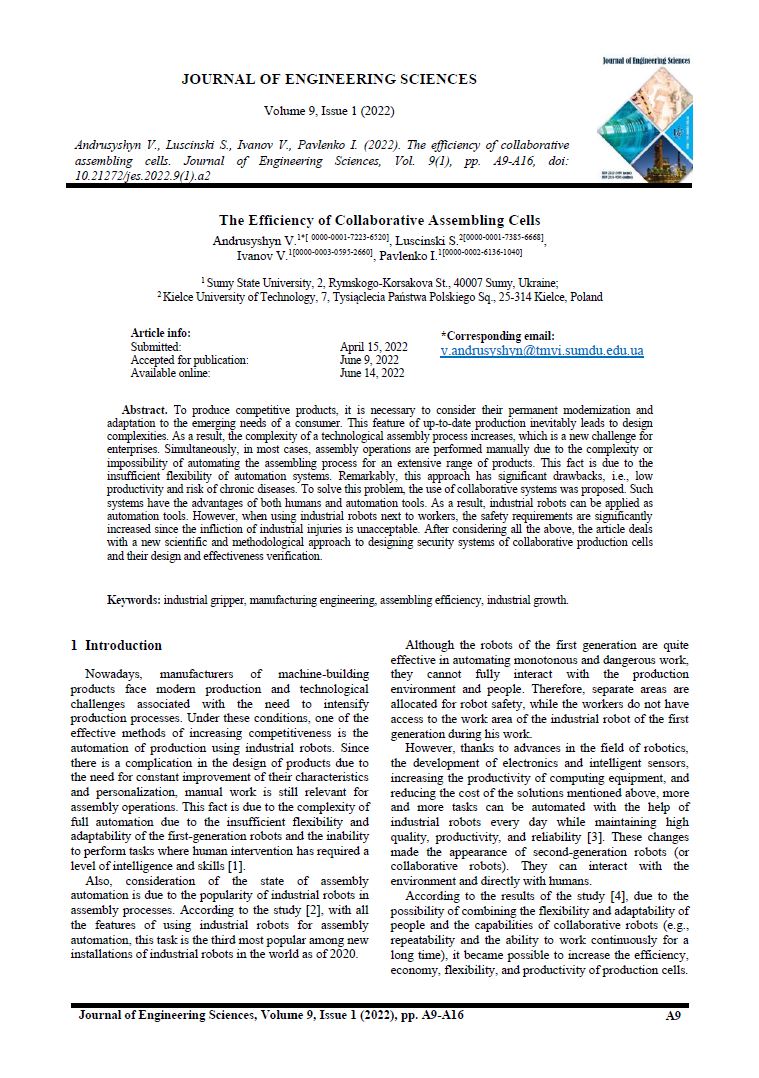Zapisywanie danych...
Abstract: To produce competitive products, it is necessary to consider their permanent modernization and adaptation to the emerging needs of a consumer. This feature of up-to-date production inevitably leads to design complexities. As a result, the complexity of a technological assembly process increases, which is a new challenge for enterprises. Simultaneously, in most cases, assembly operations are performed manually due to the complexity or impossibility of automating the assembling process for an extensive range of products. This fact is due to the insufficient flexibility of automation systems. Remarkably, this approach has significant drawbacks, i.e., low productivity and risk of chronic diseases. To solve this problem, the use of collaborative systems was proposed. Such systems have the advantages of both humans and automation tools. As a result, industrial robots can be applied as automation tools. However, when using industrial robots next to workers, the safety requirements are significantly increased since the infliction of industrial injuries is unacceptable. After considering all the above, the article deals with a new scientific and methodological approach to designing security systems of collaborative production cells and their design and effectiveness verification.

